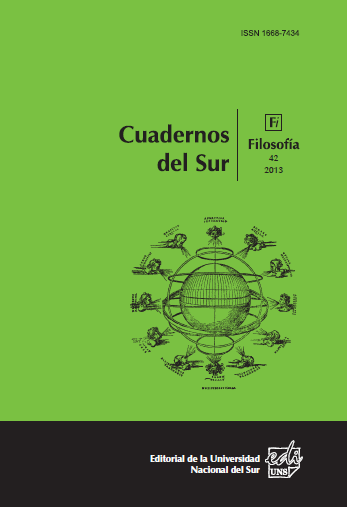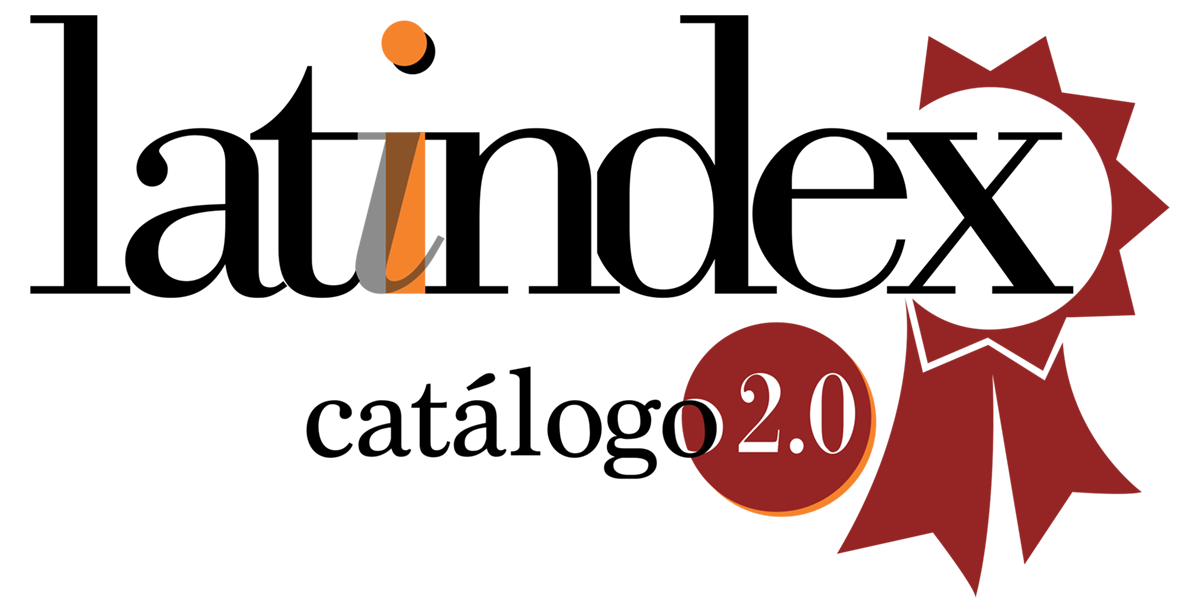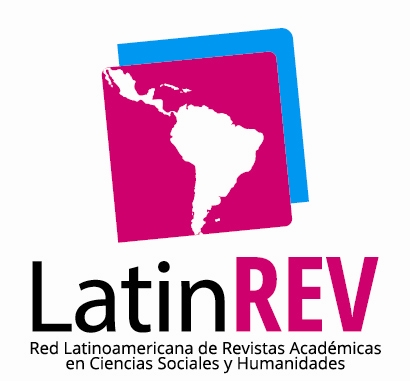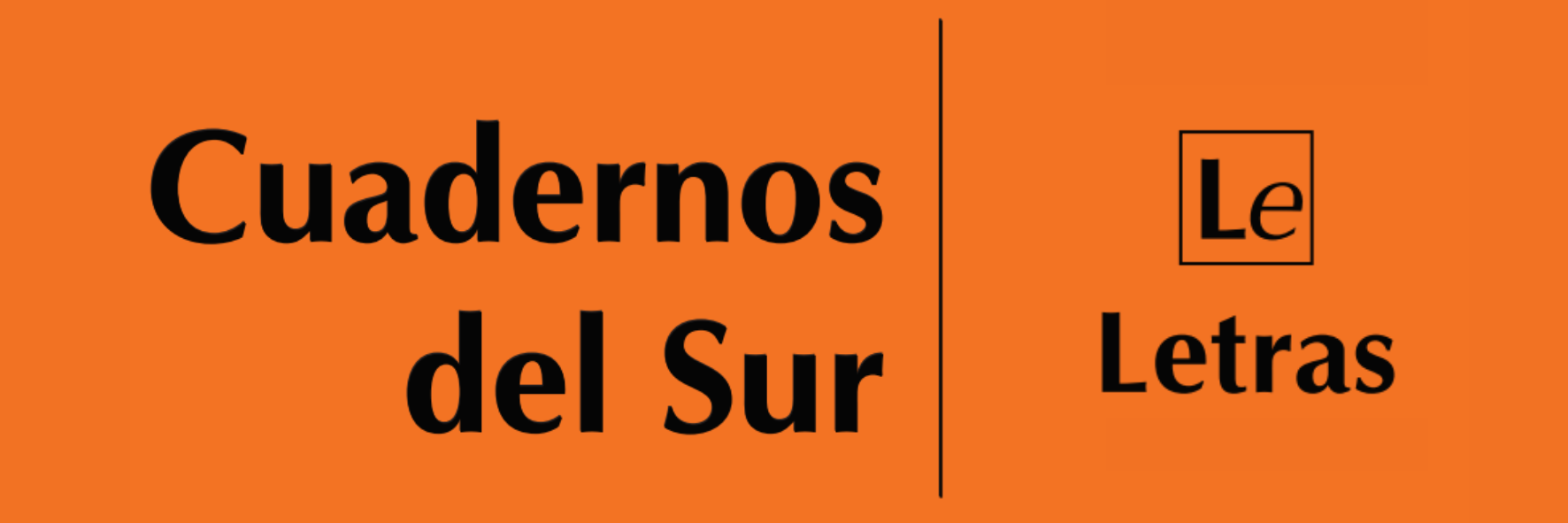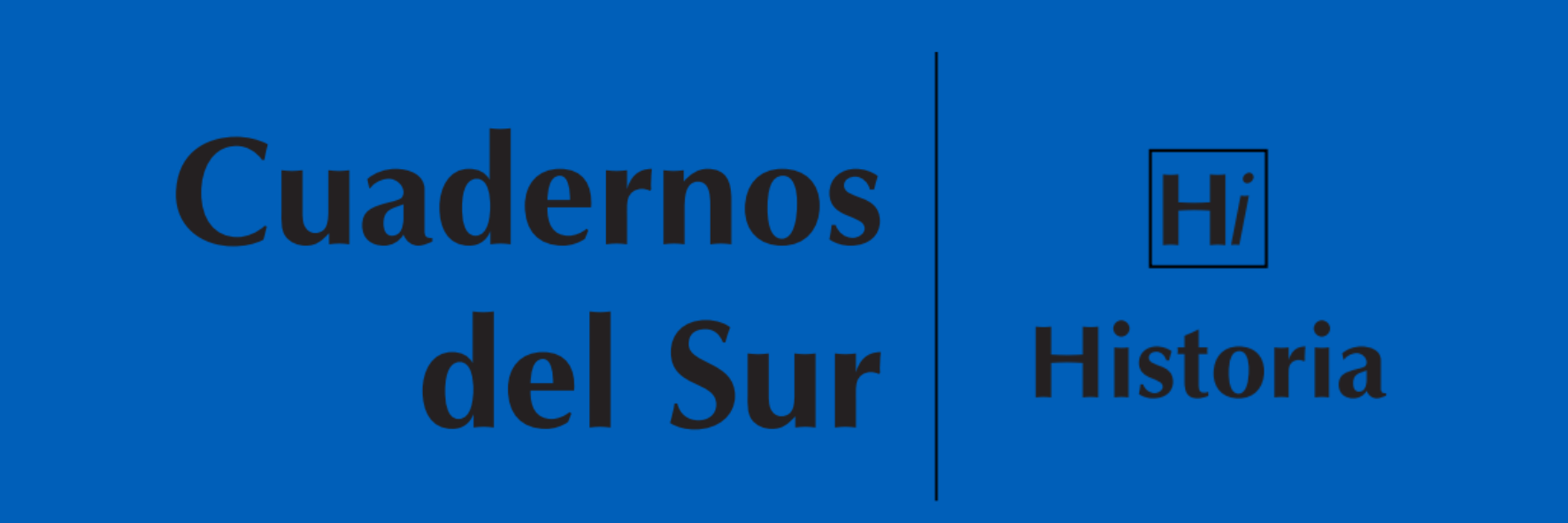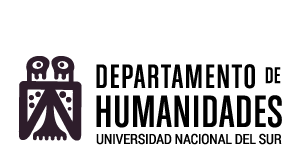La cosa en sí como un postulado de la razón teórica
Keywords:
Thing in itself, Transcendental idea, Necessary suppositionAbstract
The “Problem of the Thing in Itself” has its origin in a contradiction. On the one hand, the Kantian statement about the impossibility to know anything that exists beyond the limits of all possible experience. On the other hand, one can easily find explicit statements in the Kantian texts that violate this restriction (statements about the existence of the thing in itself, or about its capacity to affect our sensibility, etc.). In this article we state that the afore-mentioned contradiction is somehow inevitable, because it is right (at least in a Kantian way of thinking) that we cannot know the thing in itself, but it is impossible to completely disregard it in the investigation about our knowledge of the outer world. In order to look for an alternative, in this article we suggest that considering the thing in itself in the same way as the transcendental ideas, emphasizing their “regulative use”, could allow for the incorporation of the thing in itself into the investigation without crossing the limits of the knowable; since it would be incorporated as a necessary thinkable supposi-tion and not as a known datum.
Downloads
References
Adickes, Erich (1920), Kants Opus postumum dargestellt und beurteilt, Berlin, Reuter und Reichard.
----- (1924) Kant und das Ding an sich, Berlin, Pan Verlag, Rolf Heise.
----- (1927) Kant und die Als-ob-Philosophie, Stuttgart, Frommann.
----- (1929) Kants Lehre von der doppelten Affektion unseres Ich als Schlüßel zu seiner Erkenntnistheorie, Tübingen, J.C.B. Mohr.
Allison, Henry E. (1983), Kant’s Transcendental Idealism. An Interpretation and Defense, New Haven and London, Yale University Press.
Ameriks, Karl (ed.) (2000), The Cambridge Companion to German Idealism, Cambridge, University Press.
Beade, Ileana P. (2009), “Consideraciones acerca del concepto kantiano de objeto trascendental”, Tópicos, vol. 36, pp. 83-118.
----- (2010), “Acerca de la cosa en sí como causa de la afección sensible”, Signos Filosóficos, vol.12, nº 23, pp. 9-37.
Cassirer, Ernst (1956), El problema del conocimiento. II, México, Fondo de Cultura Económica.
----- (1957), El problema del conocimiento. III, México, Fondo de Cultura Económica.
----- (1968), Kant, vida y doctrina, México, Fondo de Cultura Económica.
Faerna García Bermejo, Ángel Manuel (1996), Introducción a la teoría pragmatista del conocimiento, Madrid, Siglo XXI.
Garve, Christian (1782), “Kritik der reinen Vernunft, von Immanuel Kant”, Zugabe zu den Göttingischen gelehrten Anzeigen, nº 3, Göttingen, Johann Christian Dietrich, pp. 40-48.
Goldmann, Lucien (1974), Introducción a la filosofía de Kant, Buenos Aires, Amorrortu.
Hamann, Johann Georg (1951), “Metakritik über den Purismus der Vernunft”, en Sämtliche Werke, Volumen III, Wien, Herder, pp. 280–289.
Hartmann, Nicolai (1960), La filosofía del idealismo alemán. I: Fichte, Schelling y los románticos, Buenos Aires, Sudamericana.
Heidegger, Martin (1954), Kant y el problema de la metafísica, México, Fondo de Cultura Económica.
Heidemann, Dietmar H. (2010), “Appearance, Thing-in-Itself, and the Problem of the Skeptical Hypothesis”, en Schulting, Dennis y Verburgt, Jacco (eds.), Kant’s Idealism. New Interpretations of a Controversial Doctrine, Dordrecht, Springer, pp. 195-210.
James, William (1912), Essays in Radical Empiricism, New York, Longman Green & Co.
Jacobi, Friedrich Heinrich (1815), Werke. II, Leipzig, Gerhard Fleischer.
Langton, Rae (1998), Kantian Humility. Our Ignorance of Things in Themselves, Oxford, University Press.
Oiserman, Theodor Illich (1976), Die philosophischen Grundrichtungen, Berlin, Dietz.
Palmquist, Stephen R. (1993), Kant´s System of Perspectives, Lanham, University Press of America.
Prauss, Gerold (1974), Kant und das Problem der Dinge an sich, Bonn, Bouvier.
Rábade Romeo, Sergio (1969), Problemas gnoseológicos de la “Crítica de la razón pura”, Madrid, Gredos.
Schaper, Eva (1966), “The Kantian Thing in Itself as a Philosophical Fiction”, Philosophical Quarterly, vol. 16, nº 64, pp. 233-243.
Schrader, Georg A. (1948/1949), “The Thing in Itself in Kantian Philosophy”, Review of Metaphysics, vol. 2, pp. 30-44.
Schulze, Gottlob Ernst (1911), Aenesidemus oder über die Fundamente der von dem Herrn Professor Reinhold in Jena gelieferten Elementar-Philosophie. Nebst einer Vertheidigung des Skepticismus gegen die Anmaassungen der Vernunftkritik, Berlin, Reuther & Reichard, [1792].
Shore, Eduardo (2001), Entender a Kant. La cosa en sí en la Crítica de la razón pura, Buenos Aires, Biblos.
Strawson, Peter (1975), Los límites del sentido. Ensayo sobre la Crítica de la Razón Pura de Kant, Madrid, Revista de Occidente.
Teruel, Pedro Jesús (2004), “Una conversación con Kant en 1789. El postulado de la inmortalidad a la luz de una carta de N. M. Karamzín”, Thémata. Revista de filosofía, nº 32, pp. 203-224.
Torretti, Roberto (1967), Manuel Kant. Estudio sobre los fundamentos de la filosofía crítica, Santiago de Chile, Editorial Universitaria.
Vaihinger, Hans (1911), Die Philosophie des Als Ob. System der theoretischen, praktischen und religiösen Fiktionen der Menschheit auf Grund eines idealistischen Positivismus. Mit einem Anhang über Kant und Nietzsche, Leipzig, Felix Meiner.
----- (1921), “Kants antitetische Geistesart, erläutert an seiner Als-ob-Lehre”, en Oehler, Max (ed.), Den Manen Friedrich Nietzsches. Weimarer Weihgeschenke zum 75. Geburtstag der Frau Elisabeth Förster-Nietzsche, München, Musarion, 1921, pp. 151-182.
Verneaux, Roger (1978), Crítica de la “Crítica de la razón pura”, Madrid, Rialp.
Villacañas Berlanga, José Luis (2001), La filosofía del Idealismo Alemán. Volumen I: Del sistema de la libertad de Fichte al primado de la teología en Schelling, Madrid, Síntesis.
Downloads
How to Cite
Issue
Section
License
Copyright (c) 2013 Miguel Alberti

This work is licensed under a Creative Commons Attribution-NonCommercial 4.0 International License.
Aquellos autores/as que tengan publicaciones con esta revista, aceptan los términos siguientes:- Los autores/as conservarán sus derechos de autor y garantizarán a la revista el derecho de primera publicación de su obra, el cuál estará simultáneamente sujeto a la licencia Atribución-No Comercial 4.0 Internacional CC BY-NC 4.0.
- Los autores/as podrán adoptar otros acuerdos de licencia no exclusiva de distribución de la versión de la obra publicada (p. ej.: depositarla en un archivo telemático institucional o publicarla en un volumen monográfico) siempre que se indique la publicación inicial en esta revista.
- Se permite y recomienda a los autores/as difundir su obra a través de Internet (p. ej.: en archivos telemáticos institucionales o en su página web) una vez publicado su trabajo, lo cual puede producir intercambios interesantes y aumentar las citas de la obra publicada. (Véase El efecto del acceso abierto).

